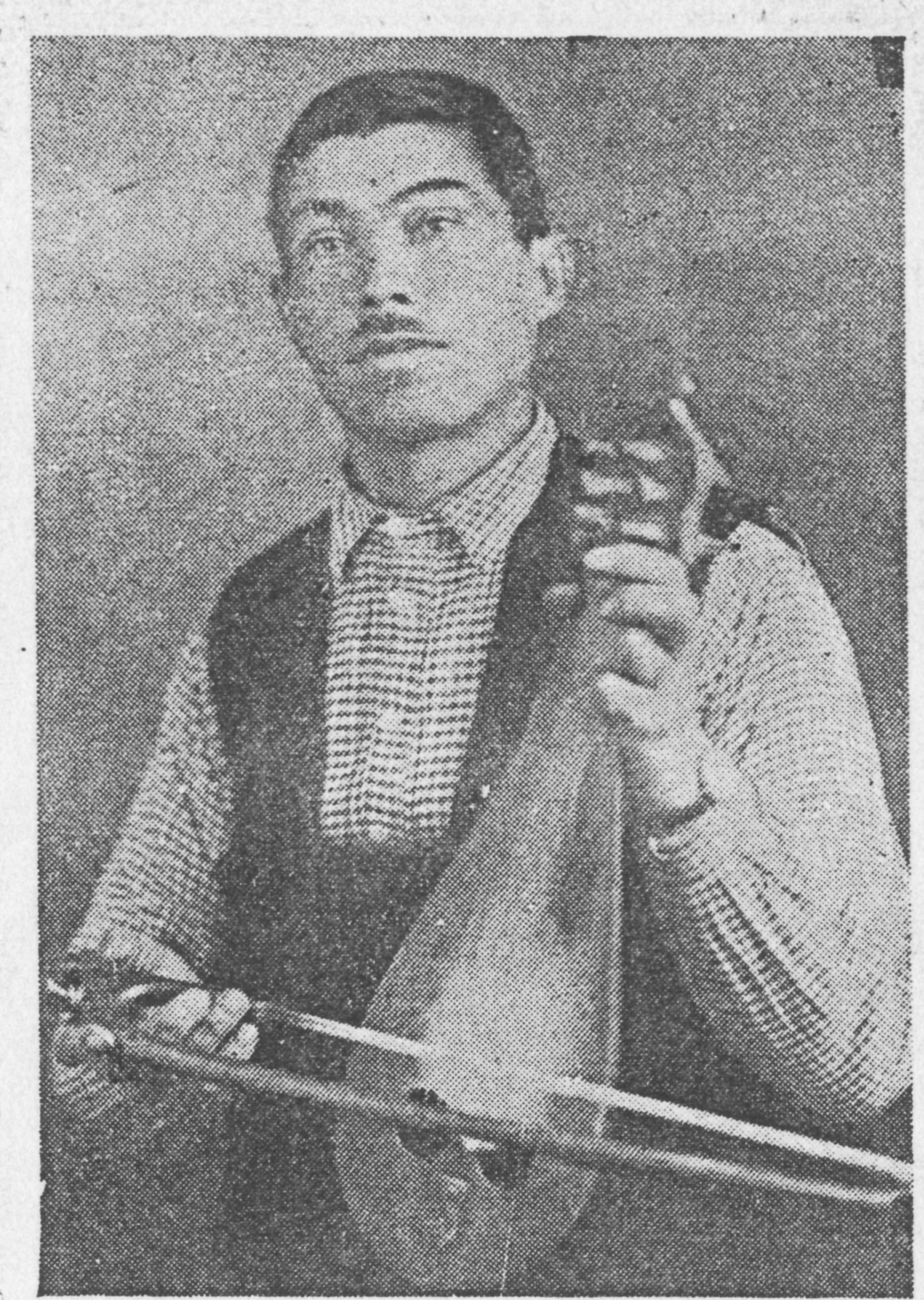STEFAN PENCHEV
The first gŭdulka player in Bulgaria to record a phonograph record
From the newspaper “Cherno More”, No. 600, December 24, 1999.
Author unknown
 The first gŭdulka player in Bulgaria to be recorded on a phonograph record is Stefan Georgiev Boinovski from the Gabrovo village Trŭneto. This little-known fact was made public by the local State Archive. With his small wooden suitcase, dressed in his local village clothing, the gŭdulka player Stefan Boinovski travelled extensively throughout the 1930s, visiting Paris, Vienna, Prague, Berlin. Wherever he went he brought a large black disc with him. He explained to his village neighbors that this was a phonograph record, which could reproduce what he played in the village square. He later put the record up on the wall in his room, and continued to make wooden wagons. 9-year-old Stefan made his own first gŭdulka by hollowing out a piece of maple and he began to invent melodies which were similar to those he had heard from his fellow villagers. This began around 1900.
The first gŭdulka player in Bulgaria to be recorded on a phonograph record is Stefan Georgiev Boinovski from the Gabrovo village Trŭneto. This little-known fact was made public by the local State Archive. With his small wooden suitcase, dressed in his local village clothing, the gŭdulka player Stefan Boinovski travelled extensively throughout the 1930s, visiting Paris, Vienna, Prague, Berlin. Wherever he went he brought a large black disc with him. He explained to his village neighbors that this was a phonograph record, which could reproduce what he played in the village square. He later put the record up on the wall in his room, and continued to make wooden wagons. 9-year-old Stefan made his own first gŭdulka by hollowing out a piece of maple and he began to invent melodies which were similar to those he had heard from his fellow villagers. This began around 1900.
As the years passed, his natural talent became more and more known in nearby villages and towns. According to the archivists cited above, his fame reached as far as the owners of the Sofia sewing machine company “Martinov-Obretenov”. Because business had slowed considerably, they decided to try their luck with phonograph records. They brought Stefan Boinovski to Sofia and recorded two songs. In short order, the famous European musical companies “Odeon Elektric” “Simonaviya” “Arfa” “London-Record” and “Columbia” also expressed interest in him. He received invitations from all over Europe, and his name began appearing in company catalogs, while his records sold briskly.
His most productive artistic period was between 1932-39. In 1960 Philip Kutev and Zhivka Klinkova came through Gabrovo . They recorded his songs, and once again stimulated an interest in his songs. Radio Sofia included his performances in their “Golden Fund” and he participated in and received awards at Koprvishtitsa, Iglikina Polyana, Belovrŭh and Bozhentsi. Bulgarian television displayed several of his handmade gŭdulkas and played recordings of his songs. The naturally-talented singer and gadulka player, who had skillfully produced wagons all his life, died in 1980 at the age of 88.
